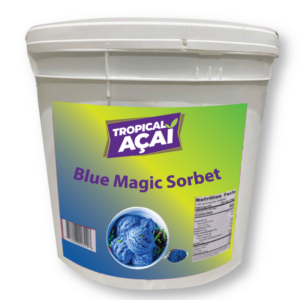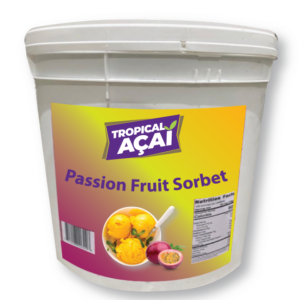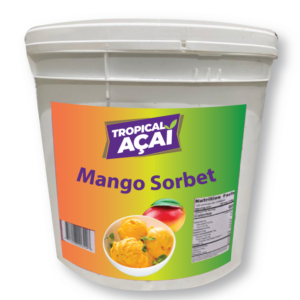Have you ever wondered why essential fatty acids are called “essential”? What benefits do these nutrients bring our bodies, and where can we find them? Let’s uncover the secrets behind essential fatty acids and how including them in our diet can support our overall health.
Key Takeaways:
- Essential fatty acids, such as Omega-3 and Omega-6, are vital nutrients our bodies need for various functions.
- These fatty acids play an important role in promoting brain health, general health, skin health, and weight management.
- Sources of essential fatty acids include fatty fish, flaxseed, walnuts, chia seeds, hemp hearts, vegetable oils, nuts, seeds, and Açaí.
- Maintaining a balance between Omega-3 and Omega-6 fatty acids is crucial for optimal health.
- Supplementation may be necessary for individuals who cannot obtain sufficient essential fatty acids from their diet.
Omega-3 Fatty Acids: Benefits for Brain and general health
Omega-3 fatty acids, a type of essential fatty acid, play a crucial role in promoting brain health and general health. Research has shown that Omega-3 fatty acids can help reduce inflammation in the body, which may be beneficial for brain health. Moreover, Omega-3 fatty acid consumption has been linked to reduced rates of diverse diseases.
Incorporating sources of Omega-3 fatty acids into our diet can support brain function and cardiovascular health. Foods such as fatty fish like salmon, flaxseed, walnuts, chia seeds, and hemp hearts are rich in Omega-3 fatty acids and can be easily incorporated into our meals. These foods provide essential nutrients that contribute to overall well-being.
Omega-3 fatty acids have been found to have numerous benefits for brain health. They support cognitive function, including memory and focus, and are particularly important for brain development in infants and children. In addition, Omega-3 fatty acids have been associated with a reduced risk of age-related cognitive decline and neurodegenerative diseases such as Alzheimer’s.
Regarding general health, Omega-3 fatty acids have been shown to have protective effects. They can help lower triglyceride levels, reduce blood pressure, and prevent the formation of blood clots. These benefits contribute to a healthier cardiovascular system and a reduced risk of diverse diseases.
Incorporating foods rich in Omega-3 fatty acids into our diet can support brain function and cardiovascular health whether it’s enjoying a delicious salmon dish or adding flaxseed to our morning smoothie, making these small dietary changes can have a big impact on our overall well-being.
Omega-6 Fatty Acids: Importance for Skin Health and Metabolism
Omega-6 fatty acids are another essential fatty acid crucial for maintaining skin health and supporting a healthy metabolism. These fatty acids play a vital role in hair and skin growth, helping to maintain the health and appearance of our skin. In addition, Omega-6 fatty acids are involved in metabolism regulation, contributing to weight management.
Include sources of Omega-6 fatty acids in your diet to promote skin health and support weight management. Here are some common sources of Omega-6 fatty acids:
- Vegetable oils (sunflower, safflower, corn, soybean)
- Nuts (almonds, walnuts, pistachios)
- Seeds (sunflower seeds, pumpkin seeds, sesame seeds)
- Açaí
These foods can be easily incorporated into your meals and snacks to ensure an adequate intake of Omega-6 fatty acids. Including a variety of sources in your diet can provide a balanced and diverse range of essential fatty acids to support skin health and metabolism.
Moreover, research has shown that Omega-6 fatty acids, in combination with Omega-3 fatty acids, play a significant role in overall health. It is important to maintain a balance between these two types of essential fatty acids for optimal well-being.
| Omega-6 Fatty Acid Sources | Omega-6 Fatty Acid Content (per 100g) |
|---|---|
| Vegetable oils (sunflower) | 65g |
| Nuts (almonds) | 26g |
| Seeds (sunflower seeds) | 34g |
| Açaí | 6g |
Add the right balance of Omega-6 fatty acids to your diet to enjoy the benefits for skin health and weight management. Remember, a healthy lifestyle and a well-rounded diet are the keys to maintaining optimal health.

The Importance of Balance Between Omega-3 and Omega-6 Fatty Acids
Maintaining a balance between Omega-3 and Omega-6 fatty acids in our diet is essential for optimal health. While both types of fatty acids are necessary for our bodies, an imbalance in their consumption can lead to health issues.
In Western diets, there is often an excess of Omega-6 fatty acids compared to Omega-3 fatty acids, which can contribute to long-term diseases like diverse diseases, cancer, asthma, arthritis, and depression.
To achieve a proper balance, it’s important to consume sources of both Omega-3 and Omega-6 fatty acids and ensure that An excess of Omega-6 fatty acids does not overshadow omega-3 fatty acids.

When it comes to maintaining a balance between Omega-3 and Omega-6 fatty acids, awareness and conscious food choices are key.
Understanding the Ideal Ratio
Although there is no universally agreed-upon ideal ratio between Omega-3 and Omega-6 fatty acids, research suggests that 1:1 to 1:4 promotes health.
However, the typical Western diet often leans heavily towards Omega-6 fatty acids, with ratios ranging from 10:1 to 25:1. This imbalance can lead to chronic inflammation associated with numerous health conditions.
Finding the Balance
To create a better balance between Omega-3 and Omega-6 fatty acids, it’s essential to include more sources of Omega-3 fatty acids in our diet:
- Fatty fish like salmon, mackerel, and sardines
- Flaxseed and chia seeds
- Walnuts and hemp hearts
Additionally, reducing the consumption of Omega-6-rich foods and oils, such as vegetable oils, processed snacks, and fried foods, can help restore balance.
By making these mindful dietary choices, we can support our overall health and reduce the risk of chronic diseases associated with an imbalance between Omega-3 and Omega-6 fatty acids.
Incorporating Balance for Optimal Health
The benefits of maintaining a proper balance between Omega-3 and Omega-6 fatty acids are numerous:
| Benefit | Omega-3 Fatty Acids | Omega-6 Fatty Acids |
|---|---|---|
| Brain Health | Supports cognitive function and reduces inflammation in the brain | Contributes to optimal brain development |
| general health | Reduces the risk of diverse diseases and supports cardiovascular health | May lower LDL cholesterol levels |
| Skin Health | It provides anti-inflammatory effects and supports healthy skin | It helps maintain skin barrier function and hydration |
| Weight Management | May contribute to appetite regulation and weight control | Supports metabolism and energy production |
We can optimize our health and well-being by prioritizing a balanced intake of Omega-3 and Omega-6 fatty acids. Making conscious choices to include a variety of omega-rich foods in our diet can help us achieve this balance and reap the benefits of essential fatty acids.
Food Sources of Essential Fatty Acids and Benefits of Supplementation
Foods rich in essential fatty acids are an excellent way to meet our nutritional needs. Including these sources of essential fatty acids in our diet supports overall health and well-being. Some of the top food sources include:
- Fatty fish such as salmon, sardines, and mackerel
- Flaxseed
- Walnuts
- Chia seeds
- Hemp hearts
- Various vegetable oils like olive oil and avocado oil
- Nuts such as almonds and pistachios
- Seeds like pumpkin seeds and sunflower seeds
- Açaí berries
Incorporating these foods into our daily meals and snacks can provide our bodies with the necessary amounts of essential fatty acids.
However, it’s important to note that some individuals may struggle to obtain sufficient essential fatty acids from their diet alone. In such cases, supplementation can be beneficial. Omega-3 supplements, such as fish oil or algae oil capsules, offer a concentrated dose of these essential nutrients.
When considering supplementation, quality is key. Look for products that have been tested for purity and safety to ensure that you are getting the best possible supplement.

Supplementation can be valuable in meeting our essential fatty acid needs, especially for those with dietary restrictions or specific health conditions. However, it’s always best to consult a healthcare professional before starting any supplementation regimen.
Conclusion
Essential fatty acids, including Omega-3 and Omega-6 fatty acids, are indispensable for our overall health and well-being. These nutrients play a vital role in supporting brain health, general health, skin health, and even weight management.
By including food sources rich in essential fatty acids in our diet, we can ensure that our bodies receive the necessary nutrients to function optimally. Fatty fish, flaxseed, walnuts, chia seeds, hemp hearts, vegetable oils, nuts, seeds, and Açaí are all excellent sources of these essential nutrients.
Maintaining a balance between Omega-3 and Omega-6 fatty acids is crucial to prevent health issues associated with an imbalance. Western diets often contain an excess of Omega-6 fatty acids, which can have long-term adverse effects on our health. We can mitigate these risks by monitoring our intake and ensuring a proper balance.
Supplementation can be considered if it’s challenging to obtain sufficient amounts of essential fatty acids from our diet alone. High-quality Omega-3 supplements, such as fish oil or algae oil, can provide concentrated doses of these essential nutrients, ensuring we meet our nutritional needs.
By prioritizing the inclusion of essential fatty acids in our diet, we can reap the benefits of improved brain function, general health, skin health, and weight management. Let’s make these nutrients a part of our daily routine and support our overall health and well-being.






